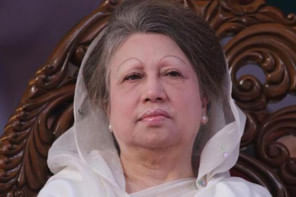Rocket Boys: A dramatic retelling of India’s scientific triumphs

Writer-director Abhay Pannu's Rocket Boys premiered on the Indian OTT platform SonyLIV in February 2022. Several social media posts featuring two of my favourite actors, Jim Sarbh and Saba Azad, immediately caught my eye and led me to the series. I watched the entire first season at a go and eagerly awaited the second until last weekend. Both times, the acting, storyline, and cinematography had me spellbound.
Rocket Boys delves into the conquests of famous Indian scientists Dr Homi J Bhabha (played by Jim Sarbh) and Dr Vikram Sarabhai (played by Ishwak Singh) as India fights for and obtains independence from colonial rule. The series recounts every scientific and political victory of India from the 1940s to the late '70s. Overall, it has its bearing on Indian nationalism, but anyone interested in the colonial and post-colonial history of the Indian subcontinent would mirror the sentiment.
The vintage, dark academia aesthetic and music of its title score led me to believe it would be a sombre show when I started watching. However, as the series progressed, I was treated to some of the best comic elements, which were created subtly through witty dialogues and situational humour.
Due to the impeccable background music and lighting, whenever a serious scene appeared, I felt as though I was physically present there. Instead of using artificial lighting, the series makes good use of natural and low lighting.
The plot follows the characters as they struggle with failure, love, grief, and personal growth. Homi and Vikram, the two scientists, have a charming on-screen chemistry; they continue to support and collaborate despite their differences in a highly competitive profession.
The way the role of the female protagonists in the show was highlighted in the plot given that the series is set in the 1940s-70s was remarkable. Padmabhushan Mrinalini Sarabhai (Regina Cassandra), Vikram's wife, uses Bharatnatyam as a language for social justice and makes political statements about women's rights, vehemently opposing her husband's illicit affair. The carefree, independent Parwana Irani (Saba Azad), often known as Pipsy, is a lawyer whose judgments widely impact Homi and Vikram's decisions.
I particularly enjoyed watching the ascent of young APJ Abdul Kalam, who began as Vikram Sarabhai's apprentice and went on to play a significant part in the founding of India's first space program and nuclear tests before becoming the country's eleventh president in 2002.
Rocket Boys contains overtly anti-American undertones, including allusions to the United States' alliance with Pakistan in Bangladesh's liberation war, Britain's defeat in World War II, and the potential for a Cold War. The prominent fictional characters Mathur, Raza Mehdi, and the CIA agents who wreak havoc in the series represent the theme.
The series can at the same time be considered a simulated political documentary as it continues to tug at nationalist sentiments exploring Pandit Jawaharlal Nehru's power in an independent, post-colonial India, establishing a republic under Congress, until the ascension of his daughter Indira Gandhi, Lalbahadur Shastri led the country. Pandit and Dr Homi's friendship seemingly mechanised India's quick rise to industrial and technological dominance.
Rant with Joyeeta on her Instagram at @smolbabyjo.


 For all latest news, follow The Daily Star's Google News channel.
For all latest news, follow The Daily Star's Google News channel. 








Comments